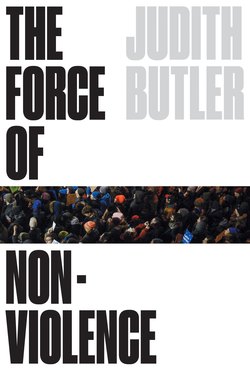The Force of Nonviolence

Реклама. ООО «ЛитРес», ИНН: 7719571260.
Оглавление
Judith Butler. The Force of Nonviolence
Отрывок из книги
THE FORCE OF NONVIOLENCE
An Ethico-Political Bind
.....
Given that self-defense is very often regarded as the justifiable exception to the norms guiding a nonviolent practice, we have to consider both (a) who counts as such a self and (b) how encompassing is the “self” of self-defense (again, does it include one’s family, community, religion, nation, traditional land, customary practices?). For lives not considered grievable (those treated as if they can be neither lost nor mourned), dwelling already in what Frantz Fanon called “the zone of non-being,” the assertion of a life that matters, as we see in the Black Lives Matter movement, can break through the schema. Lives matter in the sense that they assume physical form within the sphere of appearance; lives matter because they are to be valued equally. And yet, the claim of self-defense on the part of those who wield power is too often a defense of power, of its prerogatives, and of the inequalities it presupposes and produces. The “self” who is defended in such cases is one who identifies with others who belong to whiteness, to a specific nation, to a party in a border dispute; and so the terms of self-defense augment the purposes of war. Such a “self” can function as a kind of regime, including as part of its extended self all those who bear similitude to one’s color, class, and privilege, thus expelling from the regime of the subject/self all those marked by difference within that economy. Although we think of self-defense as a response to a blow initiated from the outside, the privileged self requires no such instigation to draw its boundaries and police its exclusions. “Any possible threat”—that is, any imagined threat, any phantasm of threat—is enough to unleash its self-entitled violence. As the philosopher Elsa Dorlin has pointed out, only some selves are regarded as entitled to self-defense.9 Whose claims of self-defense, for instance, are more readily believed in a court of law, and whose are more likely to be discounted and dismissed? Who, in other words, bears a self that is regarded as defensible, an existence that can appear within the legal frames of power as a life worthy, worth defending, not worth losing?
One of the strongest arguments for the use of violence on the left is that it is tactically necessary in order to defeat structural or systemic violence, or to dismantle a violent regime, such as apartheid, dictatorship, or totalitarianism.10 That may well be right, and I don’t dispute it. But for that argument to work, we would need to know what distinguishes the violence of the regime from the violence that seeks to take it down. Is it always possible to make that distinction? Is it sometimes necessary to suffer the fact that the distinction between the one violence and the other can collapse? In other words, does violence care about that distinction, or for that matter, any of our typologies? Does the use of violence reduplicate violence, and in directions that cannot always be restrained in advance?
.....